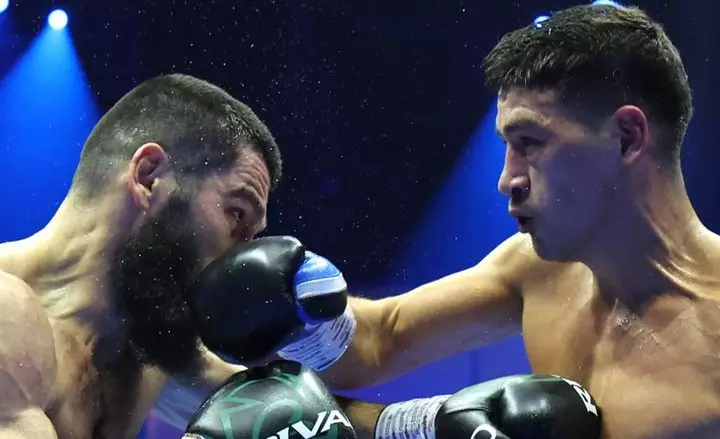Artur Beterbiev has emerged as the undisputed champion of the light heavyweight division following a contentious majority decision victory over Dmitry Bivol. While Beterbiev’s resilience and power were evident, the fight itself stirred debates among fans, experts, and commentators about the nature of victory in boxing. Many felt that Beterbiev may have been granted an undeserved win, casting a shadow over his title claim. It raises fundamental questions about the criteria that ultimately dictate success in the sport.
Bivol, known for his tactical approach and defensive proficiency, demonstrated a fluid style that perplexed his opponent throughout much of the bout. Former champions Chris Algieri and Paulie Malignaggi were vocal in their analysis, emphasizing the notion that effective defensive boxing often goes unrecognized by judges. Their commentary highlights a common dilemma in boxing—how to weigh effective aggression against defensive skill and strategy.
From the outset, Bivol deployed his jab effectively, establishing control over the fight’s tempo. Beterbiev, a fighter accustomed to dictating pace, found himself in an unusual position, often forced to chase Bivol who exhibited superior movement and spacing. The opening rounds showcased Bivol’s consistency; it appeared that he was not only landing more punches but also maintaining a rhythm that made him elusive.
As the fight progressed, Bivol steadily increased his dominance, particularly in the middle rounds where his footwork and defensive maneuvers kept Beterbiev off balance. In round four, Beterbiev looked frustrated, unable to corner Bivol effectively, which was emblematic of the challenges he faced throughout the fight. Yet, even as Bivol found success in his strategy, Beterbiev’s shots, notably harder when landed, lingered in the judges’ minds.
The fifth round marked a turning point. Bivol began to show signs of fatigue, which allowed Beterbiev to capitalize on openings. Here, the chasm between both fighters’ styles became apparent; Bivol’s earlier tap-dancing was matched by Beterbiev’s brute force. Round by round, the ebb and flow of battle kept fans on edge, as each fighter claimed victories in their own right.
When the final bell rang, the judges had their work cut out for them. The scores—114-114, 115-113, and 116-112—revealed a split decision that left some spectators in disbelief. How could a fighter who seamlessly executed a defensive masterpiece be set aside in favor of another whose success was punctuated by raw power rather than technique? This apparent discrepancy sparked outrage among Bivol’s supporters who felt that skill should be rewarded over aggression.
With Beterbiev positioned atop the light heavyweight hierarchy, critics have begun to question not only the decision itself but also the foundations upon which the judging system rests. Does a fighter’s power take precedence over a calculated, defensive style? The implications stretch beyond Beterbiev and Bivol, as they touch upon the very ethos of boxing, the sport’s appreciation for artistry versus those who merely follow the trail of knockout punches.
As the dust settles on this controversial outcome, both fighters have paths that diverge significantly. Beterbiev, now the champion, must navigate a division where his victory might be perceived as questionable. Future opponents will likely assess their strategies to exploit perceived weaknesses shown by Beterbiev in this bout. Conversely, for Bivol, the loss could serve as a motivational springboard. He has the skillset to rebound and reclaim his standing, and this experience only strengthens his resolve to prove that true boxing prowess is indeed worthy of recognition.
The Beterbiev vs. Bivol fight has opened a Pandora’s box of discussions surrounding scoring and success in boxing. For fans, it poses a conceptual challenge: is it the effective display of skill that should reign supreme, or is it the relentless pursuit of victory via any means necessary? This match encapsulated the eternal struggle within the sport—a conversation that will likely persist as long as boxing exists.


Leave a Reply